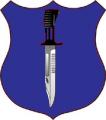It is worth pointing out, that the meaning and essence of nearly every sentence above was originally said by Clausewitz in some shape or form - back when warfare was "simple" and before it become "complex."CT Lab has Antoine Bousquet's comments on his book The Scientific Way of Warfare:
Quote:
Finally, I would like to briefly comment on what progressively emerged from my study as a central dynamic at the heart of both military practice and scientific theory and did eventually structure much of my thinking: the relationship between order and chaos. The human psyche, the organisation of human society, and the production of knowledge all strive for order and regularity and to keep at bay what threatens to bring disruption and meaninglessness into them. However, not only does chaos inevitably resurface with the capacity to upset the most stable and established of arrangements but it seems to be in fact a necessary condition of creativity and even order itself. Science has recurrently needed to concede to chaos and indeterminacy to permit the development of its understanding of the natural world, notably through the introduction of probabilities or non-linear dynamics. Throughout the development of the sciences I have charted, this tension between their drive for predictability and the limits they consistently encounter has been a perennial constant, even if the ways in which these tensions are navigated are never quite the same. What one might characterise as an on-going dialectic between chaos and order (I tend to privilege Edgar Morin’s notion of dialogic understood as the simultaneous competition, antagonism and complementarity of distinct logics and for which there exists no possible higher synthesis that might resolve this tension) is echoed in the forms taken by the organisation of military force. Indeed, all attempts to bring complete control and predictability prove to be inherently self-defeating while a tolerance for (and capacity to profit from) chaos and contingency seems an enduring necessity.









Bookmarks